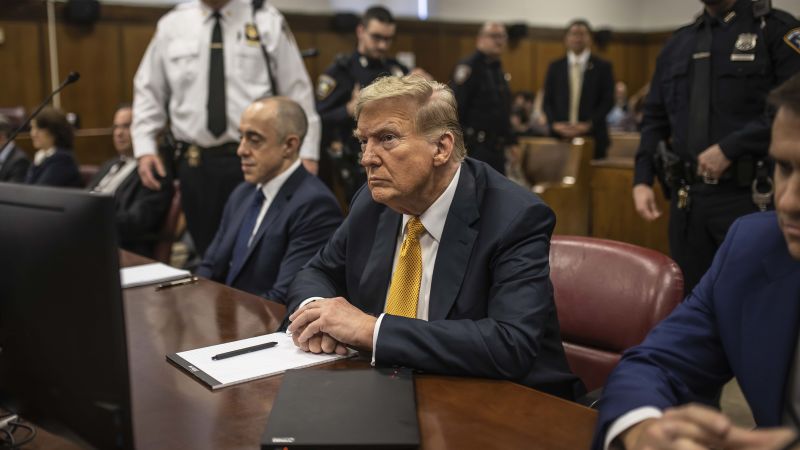Prosecutors in New York are making their final arguments to convince jurors to convict former President Donald Trump of business crimes related to his 2016 presidential campaign. The closing arguments will be challenging due to the numerous witnesses and evidence presented over the course of the trial. Prosecutors will need to weave together the testimony and evidence to make a compelling case for a guilty verdict on 34 felony counts of falsifying business records.
Former federal and state prosecutor Elie Honig noted that closing arguments are crucial in tying all the pieces of evidence together to make sense of the case for the jury. The closing arguments are expected to tell the story from the beginning and could include visual aids like a PowerPoint presentation to highlight key evidence. The importance of the documents presented during the trial was emphasized, as they serve as the star witness in the case.
Trump’s defense team will present their closing arguments first, followed by the prosecutors. The judge will then instruct the jury on the charges before they begin deliberations. The trial has featured over 50 hours of testimony from 20 witnesses, including high-profile figures like Michael Cohen and Stormy Daniels. The case revolves around alleged hush money payments made before the 2016 election to Daniels, with Trump facing 34 felony counts of falsifying business records.
Prosecutors are expected to emphasize the interconnected nature of the evidence presented in the case and push back against claims that Cohen’s testimony undermines their case due to his history of dishonesty. The trial has highlighted key documents, such as invoices, vouchers, and checks used to pay Cohen the hush money. Themes expected in the closing arguments include the character of those surrounding Trump and the corroborated evidence that supports the case against him.
The length of the trial may not be a significant challenge for the jurors during deliberations, as they have been allowed to take notes and can request parts of the trial to be read back to them. The closing arguments from both sides will be crucial in shaping the jury’s perception of the case and determining the outcome. The prosecution and defense will aim to deliver compelling closing arguments to secure a verdict in their favor and make their mark on this historic trial.













